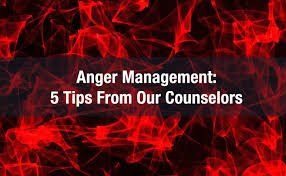How To Manage Your Anger The Healthy Way
People often say, "Anger is a bad feeling." The truth is that anger can be a good thing, and keeping it inside does more harm than good. Managing your anger is important if you don't want to say or do things you'll regret later.

Managing your anger is important if you don't want to say or do things you'll regret later. It would help if you were self-aware to know what makes you act the way you do and act on that knowledge.
The Mayo Clinic says that anger is a natural reaction to threats. On the other hand, anger management is the process of learning to notice when you're getting angry and taking steps to calm down and deal with the situation in a positive way.
There is no secret recipe, but some tips can help.
1. Express yourself
Evidence from the Harvard School of Public Health shows that people who talk about how they feel are healthier than those who keep their feelings to themselves. You need to figure out the best way to say that you're unhappy. Have you ever made a problem worse because you didn't have all the facts? That could make you look bad. Say you worked hard on something, but others got the credit instead of you. That can be a good reason to be angry. But talking about how you feel, calmly, will help you understand the situation better.
2. Take control of your breathing
When you're angry, your breathing speeds up. When you're upset, you may find yourself taking short, quick breaths. You can learn to stop this from happening by trying to slow down your breathing. This way of relaxing will help you stay in charge.
3. Write in a journal
Write what you want to say. You can make it sound more like a conversation by asking and answering questions of yourself. Journaling is a great way to talk to yourself, which can sometimes be all we need to feel better.
4. Turn on your creative lamp
Most research shows that being angry makes people more creative. The next time you're angry, you can use your genius to develop something new. You tend to feel better when you put your energy into something creative, like photography, drawing, painting, music, dancing, and so on. Handling anger well can also help a team get things done. In this way, the energy from your feelings and thoughts gets turned into something beautiful and healthy.
5. Break free Mentally
When you're angry, picture beautiful things in your mind. You could think about how your favourite meal smells or how cute your favourite pet is. Find something funny to do. When you laugh, your mood improves, and forgiveness is easier. You'll feel better if you think about the things you love. You can also do this by saying a mantra over and over in your mind. Try talking to yourself in a way you can only do. Say things like, "I'm fine," "I shouldn't let this bother me," and "I can do better." Talking to yourself like this can help you calm down.
In the past few years, stress has been linked to more anger and sadness. It can be hard and emotionally draining to try to handle intense and stressful situations. It's important to know what makes you angry and how to control it. Changing to a healthy way of dealing with anger isn't quick or easy. It's a process; the more you practise, the better you get. Why not try the tips above as a place to start?






